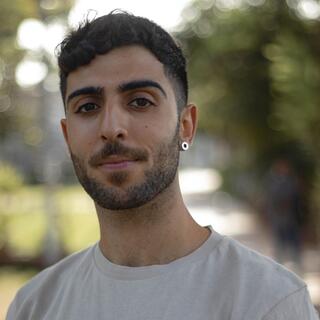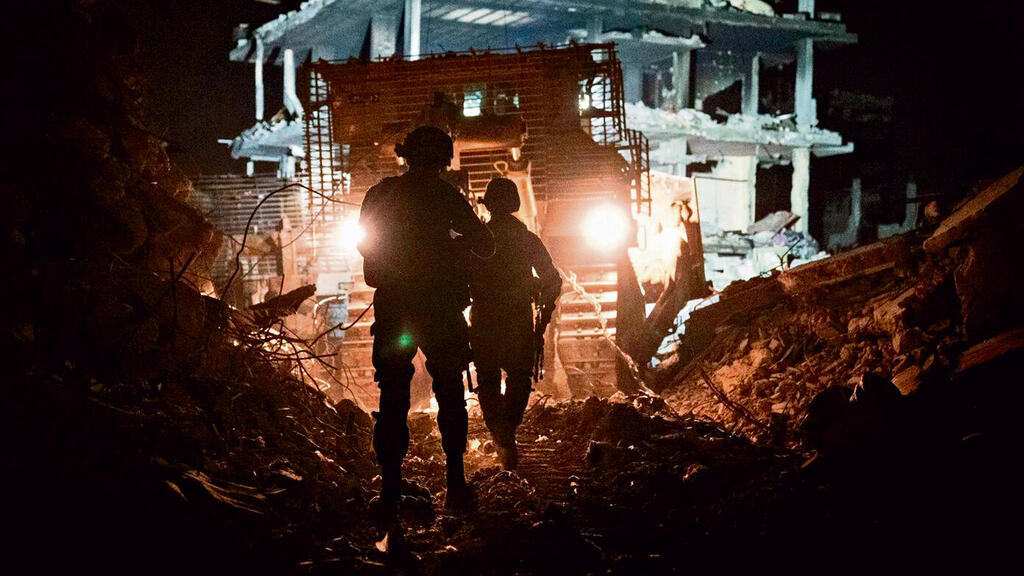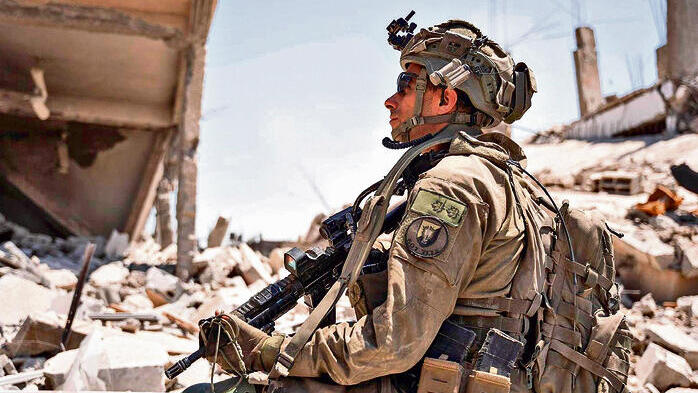Fighting in the northern Gaza Strip has renewed since the IDF resumed its operations in the area. Now, the IDF Combat Engineering Corps’ 601st Battalion is acting against underground terror tunnels and working to separate the northern part of the Strip from Gaza City proper to clear out remaining Hamas terrorists in the area.
"We've made significant progress in the two months we've been here," said Lt. Col. Yisgav Israeli, commander of the 601st Battalion. "If you walk from here (the starting point of the refugee camp) to the sea, you'll be safe."
"Our goal is to be the last soldiers in this area. To enter the area for the last time, no matter how long it takes,” he added. “We’ll be the last battalion here if it were up to us and we’re here to finish the job."
Another commander we met on the ground showed us a drone image of the densely packed Jabaliya refugee camp. He zoomed in on a central building about a kilometer away from us. Near the building, dozens of black dots are seen moving back and forth.
"Look," he pointed, "these are terrorists in buildings we still haven't destroyed. At first, our objective was to push forward quickly, but now our focus is advancing to the heart of the camp and addressing the remaining threats. This isn't simple combat. Everything is dense and there are many narrow corridors. We're fully aware of the risks."
The scale of destruction in the Gaza Strip is staggering. We didn’t see a single intact structure from the moment we passed the Zikim checkpoint to about 10 kilometers inside the strip. The Combat Engineering Corps is working without pause.
Footage of strikes against rigged buildings in Gaza
(Video: IDF Spokesperson's Unit)
At one point, we met soldiers from the March 2024 draft. Barely 19 years old, they enlisted only eight months ago. Having just graduated high school and completed their training, they're now serving in Gaza and taking part in demolishing buildings. Despite the constant danger, their spirits remain high.
When do you expect to leave here?
"I don’t know when we’re leaving," Lt. Col. Israeli answered. "We’re not planning on leaving anytime soon. This is our main mission and we’re doing it around the clock. We still have weeks, maybe months, ahead of us."
At the end of our time with him, Lt. Col. Israeli wanted to share a message. He led us to the building he uses as his headquarters. Pulling back the curtain at the entrance, he stepped into a room and sat on the couch. "I wish things worked like this outside," he said, with a hint of frustration.
Get the Ynetnews app on your smartphone: Google Play: https://bit.ly/4eJ37pE | Apple App Store: https://bit.ly/3ZL7iNv
"This is what I expect from civilians and everyone else. Your sons are risking their lives for an important mission, so there’s no need to argue over petty things back home. We all get along here as people: religious, secular, women, Druze. But when you step outside, you just want to throw your phone away and shut yourself in a room to avoid seeing what’s happening. I found it really hard to handle."
Is there any chance of finding the hostages?
"Finding the hostages is our top priority. We're here daily and every day they aren’t with us twists the knife a little deeper. We'll stay here and do whatever it takes to bring them home.”







